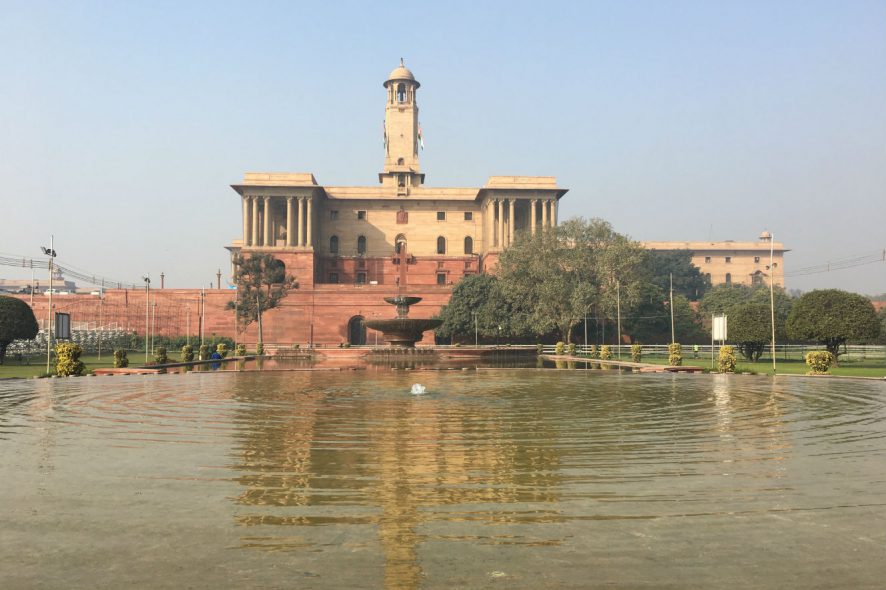Following is the list of Bills introduced in Lok Sabha today:
Article 334 of the Constitution lays down that the provisions of the Constitution relating to the reservation of seats for the Scheduled Castes and the Scheduled Tribes and the representation of the Anglo-Indian community by nomination in the House of the People and Legislative Assemblies of the States shall cease to have effect on the expiration of the period of 70 years from the commencement of the Constitution. In other words, these provisions will cease to have effect on the 25th January, 2020, if not extended further.
Although the Scheduled Castes and the Scheduled Tribes have made considerable progress in the last 70 years, the reasons which weighed with the Constituent Assembly in making provisions with regard to the aforesaid reservation of seats have not yet ceased to exist. Therefore, with a view to retaining the inclusive character as envisioned by the founding fathers of the Constitution, it is proposed to continue the reservation of seats for the Scheduled Castes and the Scheduled Tribes for another ten years i.e. up to 25th January, 2030.
The Citizenship Act, 1955 (57 of 1955) was enacted to provide for the acquisition and determination of Indian citizenship.
It is a historical fact that trans-border migration of population has been happening continuously between the territories of India and the areas presently comprised in Pakistan, Afghanistan and Bangladesh. Millions of citizens of undivided India belonging to various faiths were staying in the said areas of Pakistan and Bangladesh when India was partitioned in 1947. The constitutions of Pakistan, Afghanistan and Bangladesh provide for a specific state religion. As a result, many persons belonging to Hindu, Sikh, Buddhist, Jain, Parsi and Christian communities have faced persecution on grounds of religion in those countries.
Some of them also have fears about such persecution in their day-to-day life where the right to practice, profess and propagate their religion has been obstructed and restricted. Many such persons have fled to India to seek shelter and continued to stay in India even if their travel documents have expired or they have incomplete or no documents.
Under the existing provisions of the Act, migrants from Hindu, Sikh, Buddhist, Jain, Parsi or Christian communities from Afghanistan, Pakistan or Bangladesh who entered into India without valid travel documents or if the validity of their documents has expired are regarded as illegal migrants and ineligible to apply for Indian citizenship under section 5 or section 6 of the Act.
The Central Government exempted the said migrants from the adverse penal consequences of the Passport (Entry into India) Act, 1920 and the Foreigners Act, 1946 and rules or orders made thereunder vide notifications, dated 07.09.2015 and dated 18.07.2016. Subsequently, the Central Government also made them eligible for long term visa to stay in India, vide, orders dated 08.01.2016 and 14.09.2016. Now, it is proposed to make the said migrants eligible for Indian Citizenship.
The illegal migrants who have entered into India up to the cut of date of 31.12.2014 need a special regime to govern their citizenship matters. For this purpose, the Central Government or an authority specified by it shall grant the certificate of registration or certificate of naturalisation subject to such conditions, restrictions and manner as may be prescribed. Since many of them have entered into India long back, they may be given the citizenship of India from the date of their entry in India if they fulfill conditions for Indian citizenship specified in section 5 or the qualifications for the naturalisation under the provisions of the Third Schedule to the Act.
The Bill further seeks to grant immunity to the migrant of the aforesaid Hindu, Sikh, Buddhist, Jain, Parsi and Christian communities so that any proceedings against them regarding in respect of their status of migration or citizenship does not bar them from applying for Indian citizenship. The competent authority, to be prescribed under the Act, shall not take into account any proceedings initiated against such persons regarding their status as illegal migrant or their citizenship matter while considering their application under section 5 or section 6 of the Act, if they fulfill all the conditions for grant of citizenship.
A Bill to make special provisions for repression of piracy on high seas and to provide for punishment for the offence of piracy and for matters connected therewith or incidental thereto.
The Anti-Maritime Piracy Bill, 2019, inter alia, provides for the following:
(a) to make the provisions of the proposed legislation applicable to all parts of the sea adjacent to and beyond the limits of Exclusive Economic Zone of India;
(b) to make the act of piracy on high seas as an offence punishable with imprisonment for life or with death;
(c) to provide for punishment for attempt to commit offence of piracy or being an accessory to the commission of offence;
(d) to provide for a presumption of guilt in case certain conditions are satisfied;
(e) to make the offence extraditable;
(f) to enable the Central Government, in consultation with the Chief Justice of the concerned High Court, to specify certain courts as Designated Courts for speedy trial of offences of piracy under the proposed legislation.







